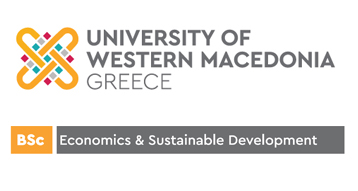Overview
The Undergraduate Study Programme "Economics and Sustainable Development" is an English-taught UoWM programme offered in the University branch in Kastoria. It is an interdisciplinary programme run by three Departments: the Department of Economics (School of Economics), Chemical Engineering (School of Engineering), and Mathematics (School of Science). Operation and administration rest with the department of Economics.
The programme aims at catering for undergraduate study to students who are non-residents in Greece, and includes courses in economics, and more specifically, in sustainable economic growth and development, circular economy, ecology and environmental economics with the use of environmentally friendly technologies. Graduates will be qualified to meet the needs for sustainable economic growth and development solutions of their home economies as well as the needs of the international market.
The major purpose of the programme is to educate executives to respond to the new requirements for economic growth and development focused on environmental degradation due to economic activity. This is achieved by means of:
- integrating graduates into the domestic and international labour markets for a successful professional career, either in academia and research or in business.
- fostering specialization in using Financial Analysis methods and tools with an emphasis on sustainable economic growth and development.
- offering expert knowledge to graduates in the international institutional framework of renewable energy sources and international energy trade.
- qualifying students with special abilities and skills to become expert professionals in the field of management of energy sources and the protection of the environment.
- catering for outstanding education, which will allow students to implement acquired knowledge for investment organization and management towards sustainable economic growth and development.
The programme offers graduates professional career opportunities in both the public and private sectors of the economy and in various areas, such as business administration, finance, banking, and financial advisory services. Graduates can also be employed in research centres, regulatory authorities, public administration bodies as well as the secondary education.
Graduates will acquire a cohesive and thorough understanding across a wide spectrum of topics related to Economic Analysis and Management of Entities, encompassing the broader context of societal and governmental frameworks, and Business Organizations. This expertise encompasses various aspects and insights from both Macroeconomic analysis and other relevant fields.

